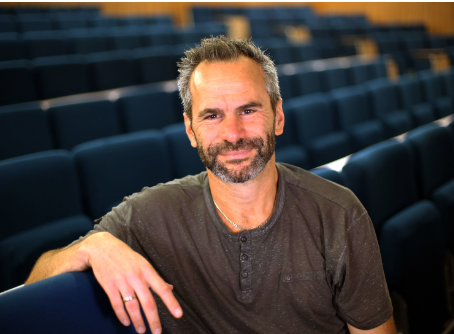Workshop Description
This one day workshop with Mick Cooper is an exploration of how Therapy can contribute to Social Change.
This workshop will explore the interface between therapy and social justice. The first part of the workshop will look at the contribution social justice perspectives can make to the way we think about, and practice, counselling and psychotherapy.
As mapped out by the late great Pete Sanders, we will look at the politics of the helping professions, the politics of helping theories, the place of politics in helping practices, and the helper as citizen with the potential for political action. The second part of the workshop will then look at the contribution that counselling and psychotherapy theory and practice can make to progressive social change. This includes setting out an understanding of what it means to thrive, and developing practices—like nonviolent communication and social and emotional learning—that can help to promote a more caring, empathic, equitable society.
As part of the workshop, we will explore the parallels between positive change on the sociopolitical level and positive change on the psychological level—establishing common principles of what is means to thrive and how we can get there. This exploration will help to reveal the parallels between our ‘inner’ and ‘outer’ worlds and how, within each world, better things happen when we relate in democratic and egalitarian ways – ways that prize difference, diversity, and marginalised voices.
The workshop will be delivered online and includes self-development exercises (via a workbook), theoretical input, and large group discussion.
Learning Outcomes
By the end of this workshop, participants will be able to:
- Identify key areas of interface between counselling and psychotherapy and social justice concerns
- Comprehend how principles of social justice can be applied to therapeutic practice and training
- Identify areas of their therapeutic practice that can be improved through a consideration of social justice issues
- Comprehend the contribution that counselling and psychotherapy theory and practice can make to wider progressive social change
- Recognise parallels between progressive change at the intrapersonal, and interpersonal, levels
Course Content
Presenter

Mick Cooper is an internationally recognised author, trainer, and consultant in the field of humanistic, existential, and pluralistic therapies. He is a Chartered Psychologist, and Professor of Counselling Psychology at the University of Roehampton.
Mick has facilitated workshops and lectures around the world, including New Zealand, Lithuania, and Florida.
Mick’s books include Existential Therapies (Sage, 2017), Working at Relational Depth in Counselling and Psychotherapy (Sage, 2018), The Handbook of Person-Centred Psychotherapy and Counselling (Palgrave, 2013), and Integrating Counselling and Psychotherapy: Directionality, Synergy, and Social Change (Sage, 2019).
His latest work is Psychology at the Heart of Social Change: Developing a Progressive Vision of Society (Policy Press, 2023)
Mick Cooper is also the editor of The Tribes of the Person-Centred Nation (PCCS, 2024) and co-editor of The Handbook of Person-Centred Psychotherapy and Counselling (3rd ed, 2024).
Mick’s principal areas of research have been in shared decision-making/personalising therapy, and counselling for young people in schools.
In 2014, Mick received the Carmi Harari Mid-Career Award from Division 32 of the American Psychological Association. He is a Fellow of the British Association for Counselling and Psychotherapy and the Academy of Social Sciences.
His latest work is Psychology at the Heart of Social Change: Developing a Progressive Vision of Society (Policy Press, 2023)
The book looks at the interface between therapy and social justice. The blurb for the book reads: ‘Over the past century, psychotherapy – and its parent discipline, psychology – has built up a vibrant, nuanced and highly practical understanding of human wellbeing and distress. This book describes a progressive political approach that integrates insights from the psychotherapeutic and psychological domain, moving us from a politics of blame to a politics of understanding. In this vision of society – surrounded by a culture of radical acceptance – all individuals can live rich and fulfilling lives. We need those shaping our political landscape to understand psychological needs and processes more deeply to enhance our ability to work with others in a spirit of collaboration, dialogue and respect.’


